
China
20:51, 27-Jun-2017
A day in the life of a Hong Kong teen
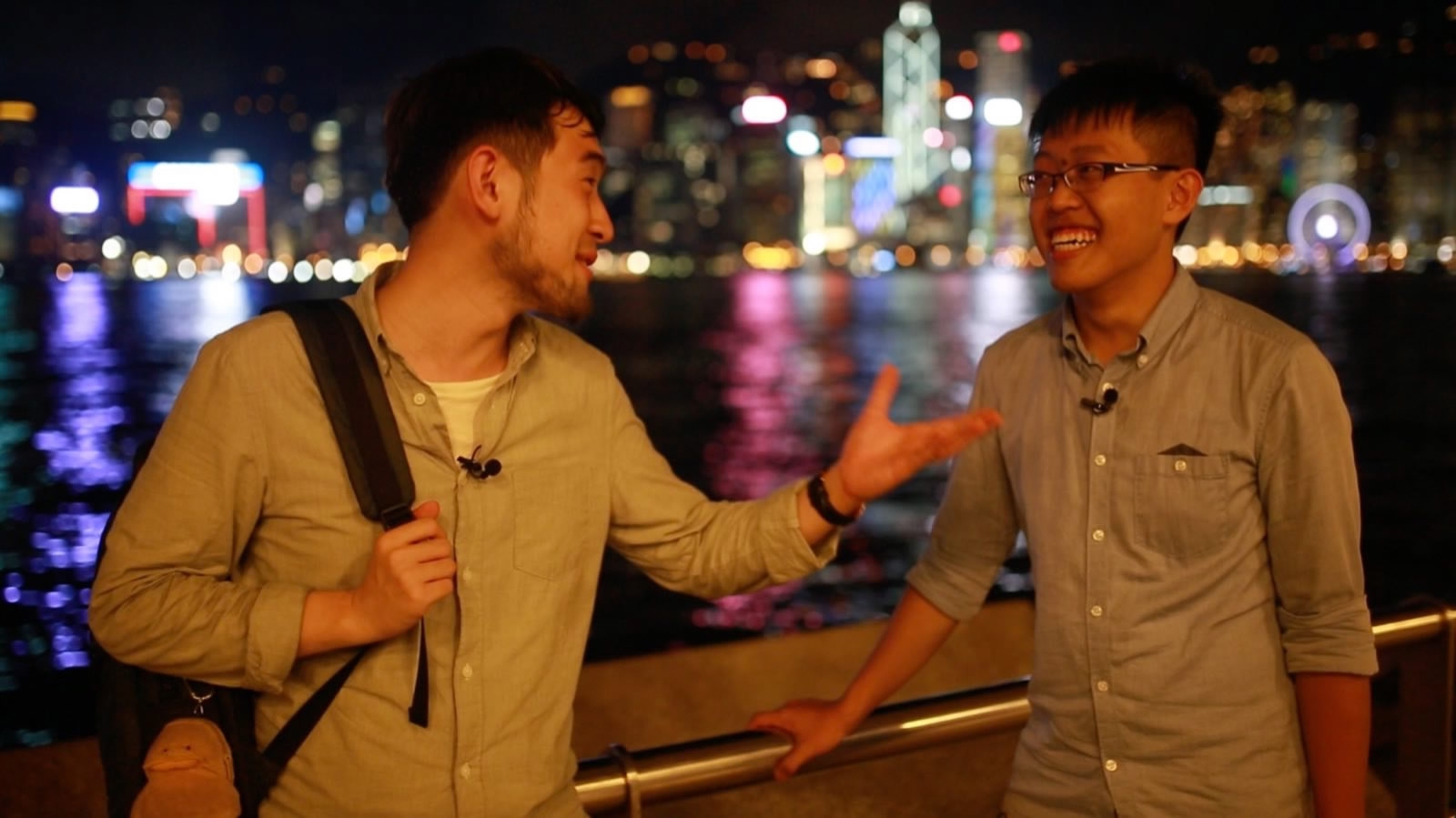
Born After 1997
For those who were born after 1997, Hong Kong’s colonial years belong to the past. Unlike their parents, these teenagers were born with a “Passport of the Hong Kong Special Administrative Region” and grew up under increasing influences from the Chinese mainland.
Rocky is part of the “post-1997 generation” of Hong Kong. Having just graduated from high school, he is feeling a bit unsure about the future.
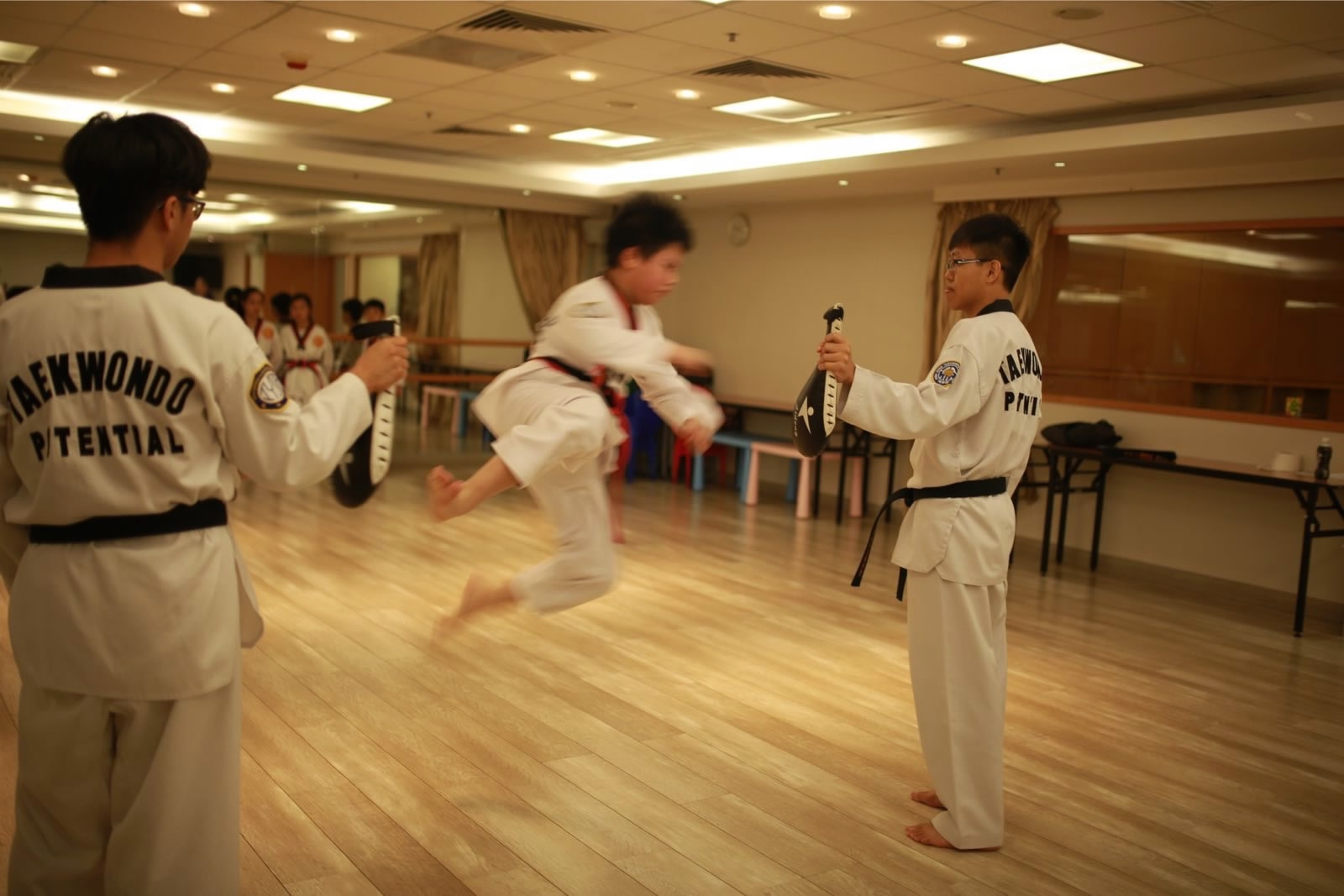
Rocky at a kick-boxing training ground. /CGTN Photo
Rocky at a kick-boxing training ground. /CGTN Photo
“I am still applying for a college, but it’s quite unlikely that I can make it,” said the 17-year-old. According to Rocky, this year only one in five high school graduates in Hong Kong will get the chance to study at a public university, whereas in recent years over 70 percent of students on the Chinese mainland have been able to go to college.
Nevertheless, Rocky is a very knowledgeable and well-informed young man. During his interview with CGTN, he elaborated on the major differences between the judicial systems of Hong Kong and the Chinese mainland, showing wisdom beyond his years.
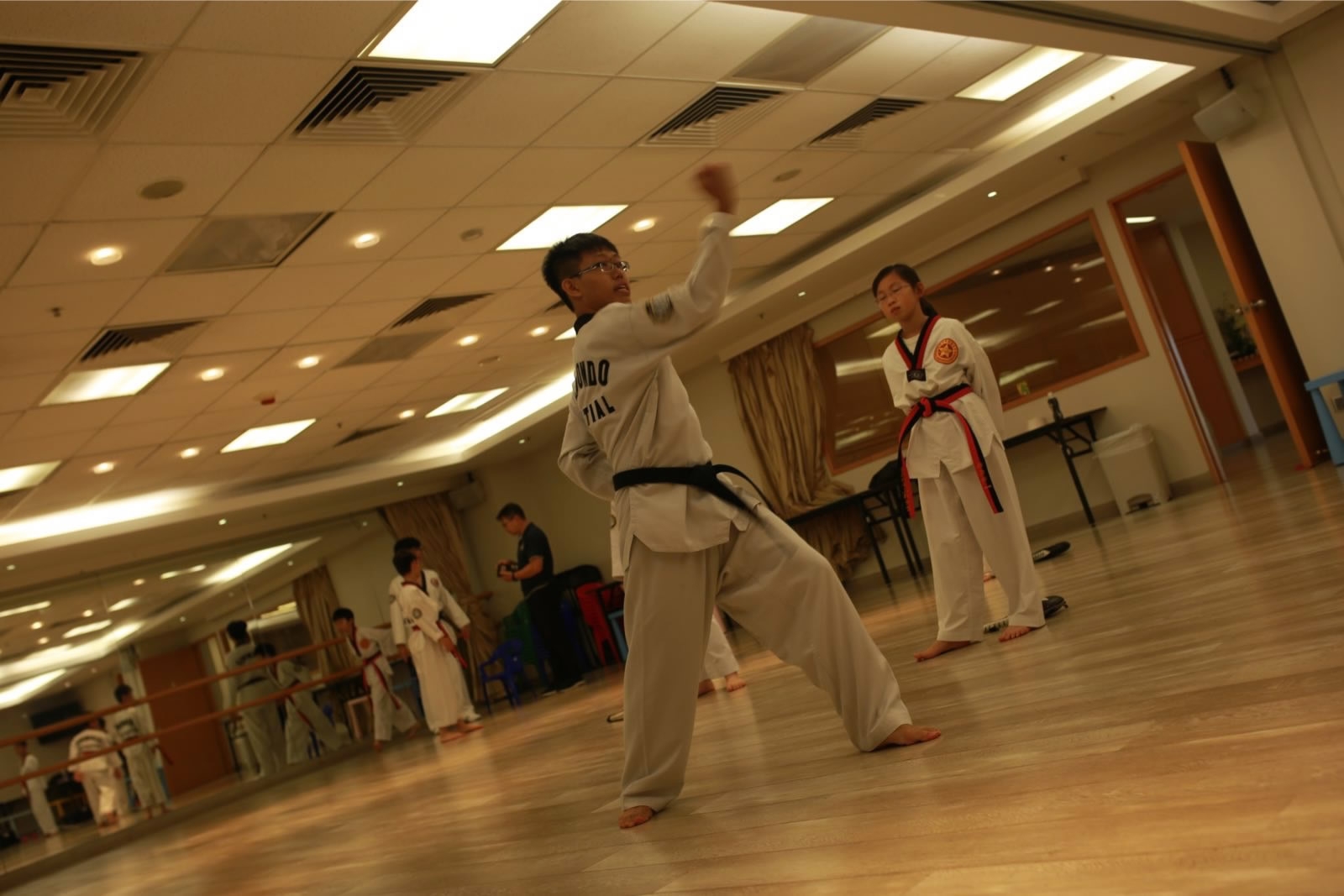
Rocky at a kick-boxing training ground. /CGTN Photo
Rocky at a kick-boxing training ground. /CGTN Photo
Like other students from Hong Kong, Rocky also has many interests outside of school, and has worked part-time as a kick-boxing coach for more than three years. Every year, he travels to Shantou, a Chinese city in southern Guangdong Province three to five times to meet his relatives.
Two Systems, One Problem
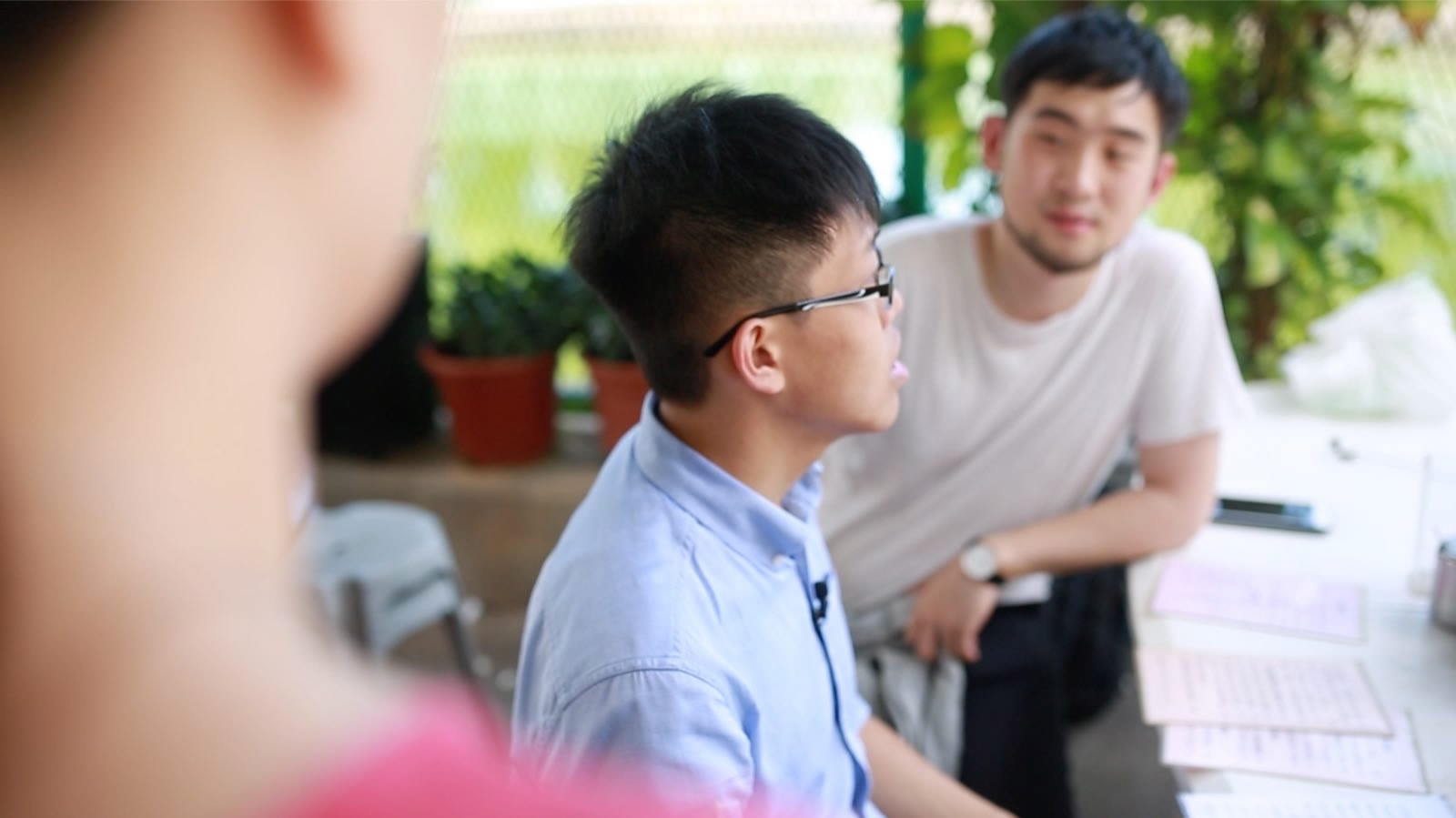
Rocky chats with CGTN digital editor Marco. /CGTN Photo
Rocky chats with CGTN digital editor Marco. /CGTN Photo
After the kick-boxing session, Rocky introduced us to his classmate. Tom is from one of Hong Kong’s few remaining indigenous families, whose ancestors had already settled in the region long before the British occupation.
They now live in several settlements scattered across the outskirts of Hong Kong called “Weicun" (walled villages), and enjoy certain privileges from the SAR government. “Many people don’t know about the Weicun, but they are the quintessential Hong Kong,” said Rocky.
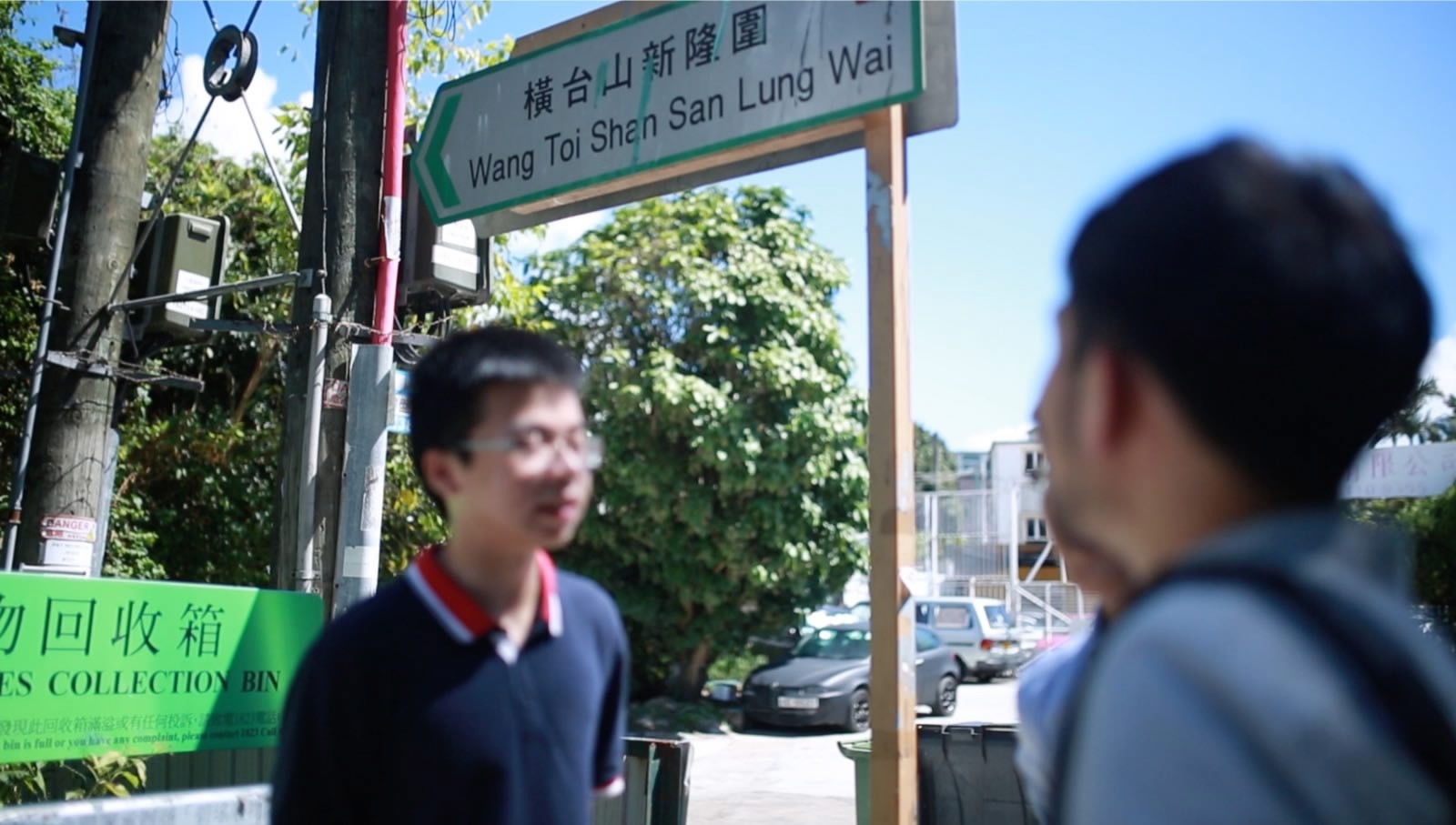
Tom and Marco at Hong Kong's walled village. / CGTN Photo
Tom and Marco at Hong Kong's walled village. / CGTN Photo
For us, it was an unusual experience – a Weicun was the last thing we expected to see in the modern hustle and bustle of Hong Kong. There were no crowded streets and buildings, or people jostling with others on the street – everything just looked like a normal Chinese village.
Unlike the few people like Tom who are eligible for land allocated by the government, Rocky is one of many to have been frustrated by the housing problems in Hong Kong.
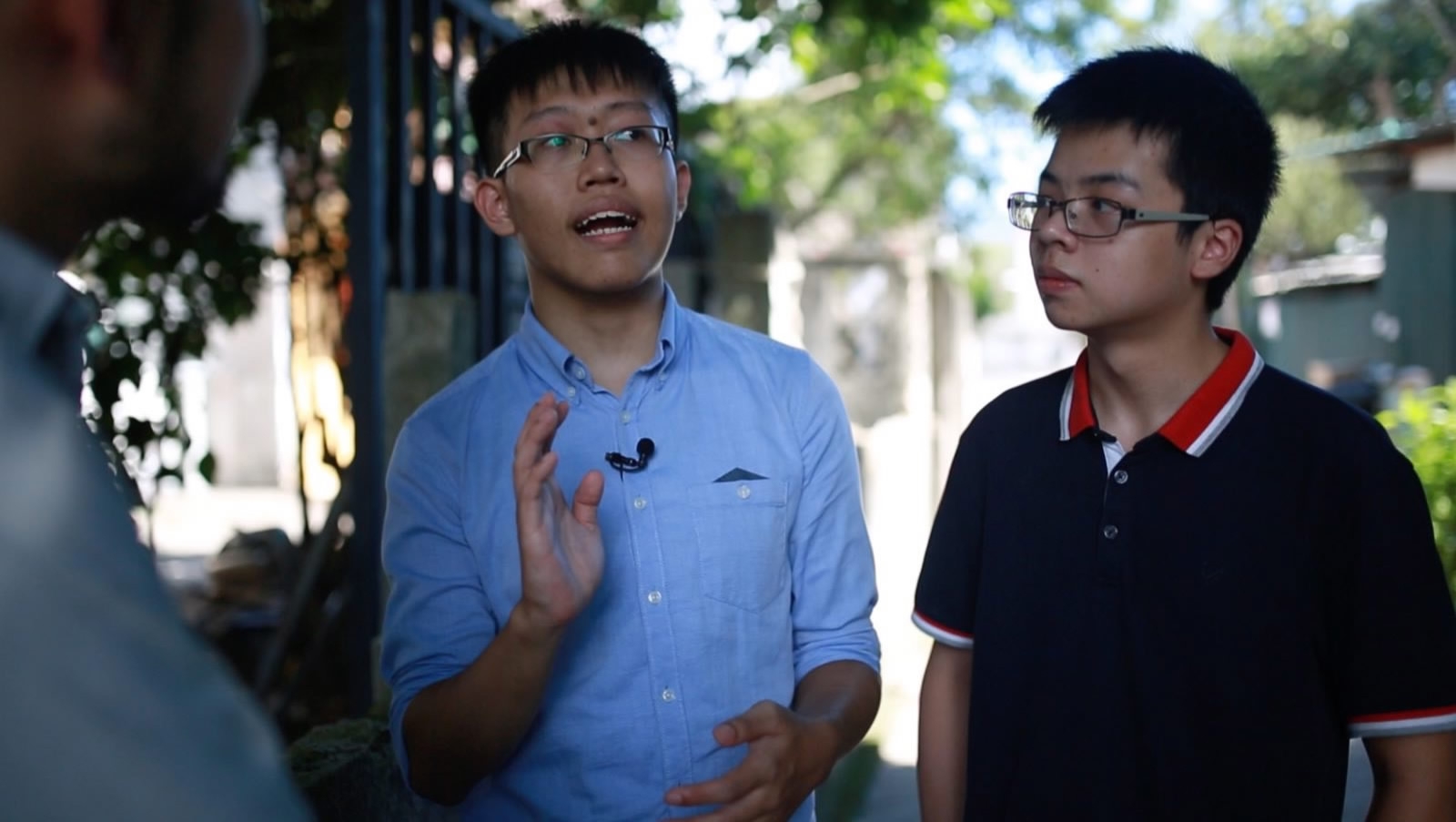
Rocky and Tom takes questions from CGTN. /CGTN Photo
Rocky and Tom takes questions from CGTN. /CGTN Photo
“With the average salary of graduates in Hong Kong, which is about 20,000 HK dollars (2,560 US dollars) a month, you will probably need 40 years to pay your entire mortgage, to buy a 20-square-meter apartment,” said Rocky. Such a size is considered normal in Hong Kong.
But isn’t unaffordable housing also a problem in other major Chinese cities? Although we found many differences between “us” and “them” in terms of lifestyle, we couldn’t help but feel united over the thorny subject of struggling to afford a place to live.
What does the future hold?
At dusk, Rocky took us to Temple Street, a place full of energy and delicious street food, to wrap up our first day in Hong Kong. After we tasted some incredible seafood and snacks, I got the chance to throw some more serious questions at him.

A street view at Temple Street, Hong Kong. /CGTN Photo
A street view at Temple Street, Hong Kong. /CGTN Photo
One question I couldn’t resist asking was: what will Hong Kong be like after 30 years? For Rocky and his generation, the future is clear.
When Deng Xiaoping first proposed the idea of “One Country, Two Systems”, the fundamental principle that made Hong Kong’s return to China possible, he also promised that the city would retain its established system under a high degree of autonomy for at least 50 years.
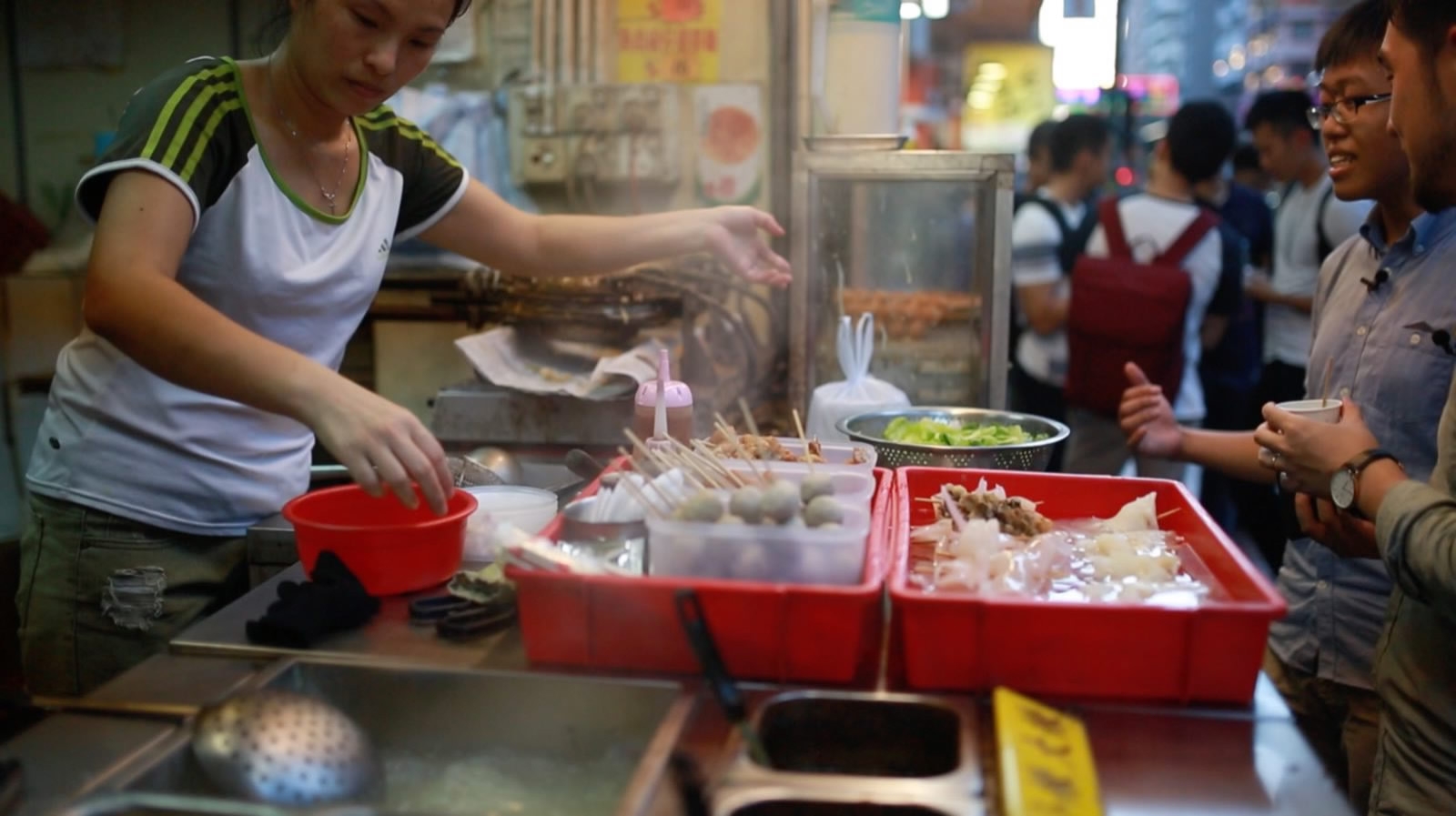
Rocky takes Marco to Temple Street. /CGTN Photo
Rocky takes Marco to Temple Street. /CGTN Photo
“I am satisfied with the current state of One Country, Two Systems,” said Rocky. “Hong Kong was historically a part of China, it was only divided by war. So it’s impossible for the two sides to be separated again. Both Hong Kong and the mainland should contribute to make a better China.”
Speaking of the Two Systems, Rocky said “although we have returned to China, there are many different rules and policies on both sides. It takes time for us to get used to all the changes.”
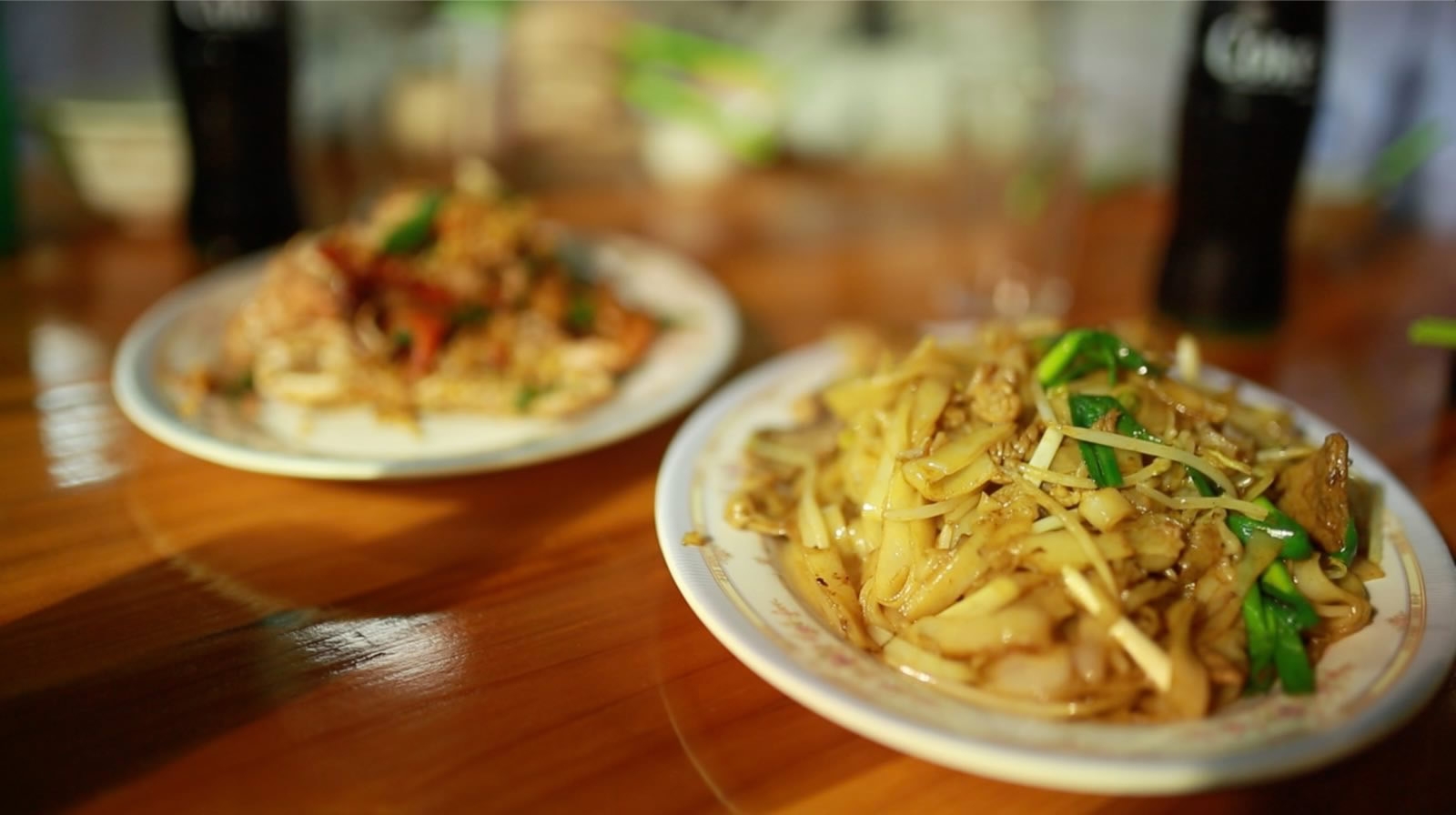
Local Hong Kong street food at Temple Street. /CGTN Photo
Local Hong Kong street food at Temple Street. /CGTN Photo
Understandably, it is not easy for Rocky and other Hong Kong residents to change their way of life in the blink of an eye. Change takes time, and the Chinese government fully respects that.
But this young Hong Konger believes that as time goes by, both the Chinese mainland and Hong Kong will change at the same time – life on the mainland has already changed dramatically since 1997, and China has never been as open and developed as it is today.
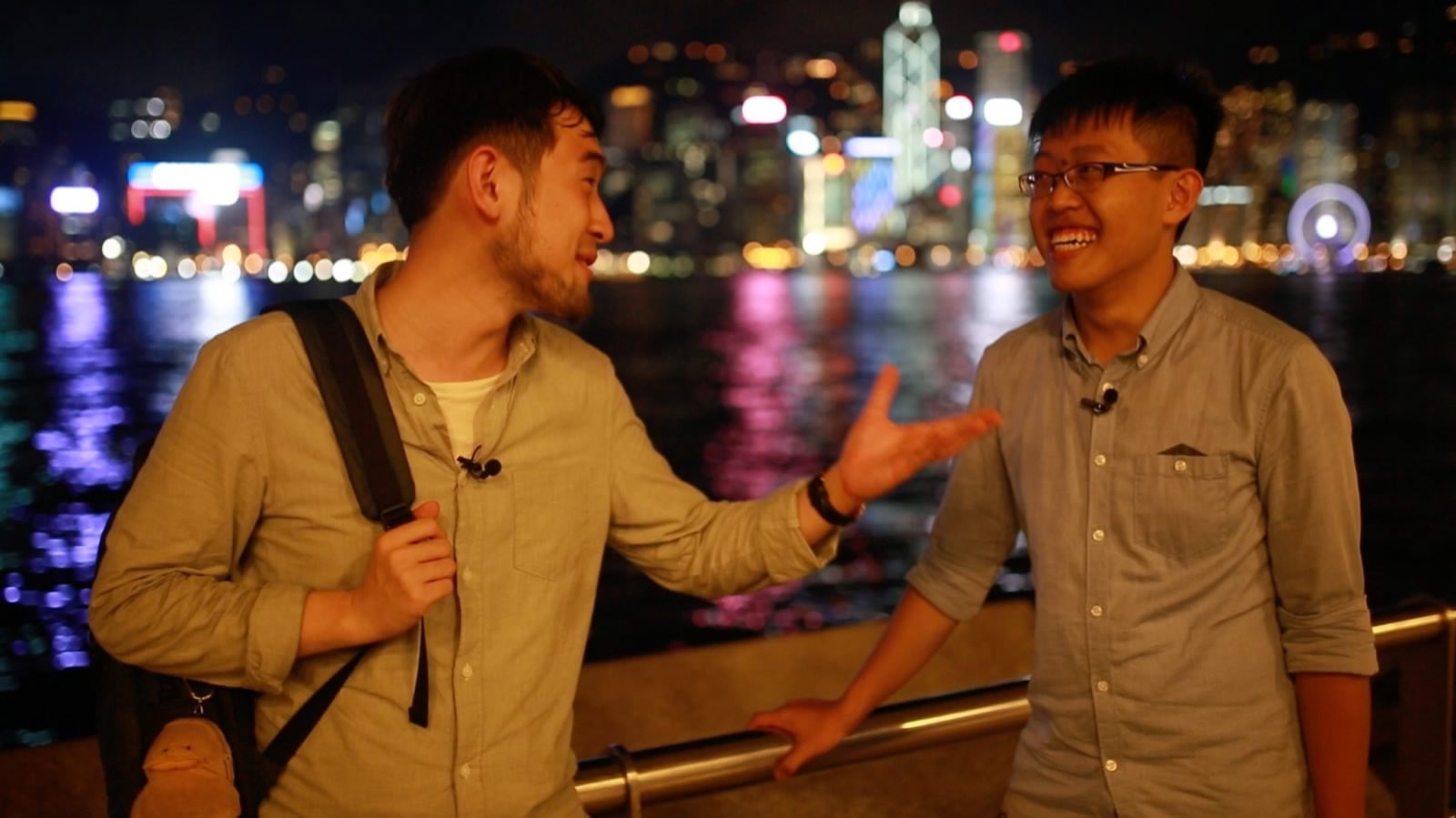
Rocky talks to Marco at Victoria Harbor, Hong Kong. /CGTN Photo
Rocky talks to Marco at Victoria Harbor, Hong Kong. /CGTN Photo
“Some might wonder if Hong Kong will become what the mainland is like today…but I would rather ask if the mainland will be more like today’s Hong Kong?”
6km

SITEMAP
Copyright © 2018 CGTN. Beijing ICP prepared NO.16065310-3
Copyright © 2018 CGTN. Beijing ICP prepared NO.16065310-3